 Dick Houtman, University of Leuven, Belgium Dick Houtman, University of Leuven, Belgium
Dick Houtman is Professor of Sociology of Culture and Religion at the University of Leuven, Belgium, and was a visiting fellow at Yale’s Center for Cultural Sociology (CCS) in the academic year 2012-2013. His research addresses the manifestations and wide-ranging consequences of a Romantic turn that has profoundly transformed the West since the 1960s, not least the realms of religion, politics, consumption and social science itself. He has published about 200 articles and book chapters and about 20 books on these issues.
His articles have appeared in journals like Review of Religious Research, Journal for the Scientific Study of Religion, Journal of Contemporary Religion, Politics and Religion, Politics and Society, American Journal of Cultural Sociology, Cultural Sociology, Information, Communication & Society, European Journal of Cultural Studies, Social Forces, and The Sociological Review. His latest book, Science under Siege: Contesting the Secular Religion of Scientism (co-edited with Stef Aupers and Rudi Laermans, 2021), addresses contemporary conflicts about the authority of science.
During his stay at CCS in 2023 he plans to complete two books about spirituality, New Religious Movements and the Spirit of Modernity (co-authored with Stef Aupers and Galen Watts) and The Public Significance of the Spiritual Turn (co-edited with Galen Watts), plus a book titled Understanding Cultural Sociology (co-authored with Galen Watts), which addresses the logic and intellectual urgency of cultural sociology. (Visiting Faculty Fellow - February, 2023 to September, 2023).
|
|
Yoshie Yanagihara is a Professor at Tokyo Denki University, School of Science & Engineering. She was a visiting fellow at Yale Macmillan Center in the academic year 2011-2012 granted by scholarship through The University of Tokyo “Todai-Yale Initiative”. During her time at Yale Macmillan Center, she began to study cultural sociology and the civil sphere theory.
She is engaged in bioethical issues focusing on cultural structures which intercedes applying reproductive technologies and recognition of women’s bodies. Her latest research project examines discourses concerning surrogacy in mass media using a theoretical framework of Biopolitics and Civil Sphere Theory.
In 2017, she was a participant in The Civil Sphere in East Asia Project, organized by Jeffry Alexander and David A. Palmer. For this project she contributed a paper “What Constitutes ‘Autonomy’ in the Japanese Civil Sphere? : The Struggle over Surrogacy” (2019, Cambridge University Press).
Her major paper in the academic arena of bioethics is titled “Reconstructing feminist perspectives of women’s bodies using a globalized view: The changing surrogacy market in Japan” published in Bioethics (2020). Her latest article “The practice of surrogacy as a phenomenon of ‘bare life’: An analysis of the Japanese case applying Agamben’s theory “, Current Sociology (2021) earned her recognition by the International Sociological Association, and she was awarded “Sociologist of the Month” by them in September 2021.
She is currently preparing for a book publication which will be a compilation of her articles written over past ten years. It is tentatively titled “Biopolitics of Surrogacy: examination of knowledge and power analyzing in cultural sociology” (In Japanese). (Visiting Fellow - April, 2023 to April, 2024)
|
|
Johan Gøtzsche-Astrup is a Carlsberg Internalization Fellow and a visiting research associate at Aarhus University. He studies how contention, such as protests and riots, is ascribed meaning in liberal democracies. His current work centers on the activist as a consolidated cultural character, uncovering how activists are constructed and reasoned about in the US public. In his PhD, he developed a post-foundational perspective on contention. He used this perspective to study how the boundary between political protests and riots emerged historically and is configured today. His recent work has appeared in journals such as Sociological Theory, Sociology, and Current Sociology. (Postdoctoral Fellow - October, 2022 to October, 2023)
|
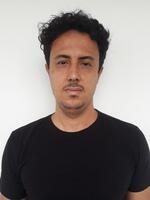 Romulo Lelis, Brazilian Center of Analysis and Planning Romulo Lelis, Brazilian Center of Analysis and Planning
Romulo Lelis is a Postdoctoral Associate at the Brazilian Center of Analysis and Planning, funded by the Sao Paulo Research Foundation. Working in the intersection of intellectual history, social theory and religion, he is currently writing a book on the making of the Durkheimian sociology of religion through the collaboration of Durkheim and the Année Sociologique team. He earned a PhD in Sociology and a dual BA in Philosophy and Social Sciences at the University of Sao Paulo. (Postdoctoral Fellow - December, 2022 to December, 2023)
|
|
Marcel Knöchelmann is a postdoctoral fellow at the Center for Cultural Sociology, Yale University. His work focusses on the intersection of literature, solidarity, and democracy. In his postdoctoral project, funded by the German Research Foundation through the Walter Benjamin Programme, Marcel studies cultural intermediation in contemporary literary production in the US. What is the role of art—and literature in particular—in the forming and reproduction of democratic society? How do intermediaries such as editors, critics, or jury board members draw on the civil sphere to legitimate or justify their decisions? Marcel combines Civil Sphere Theory with aesthetic theory for answering these questions.
Marcel received his PhD from University College London in 2021 with a sociology of authorship and publishing in the humanities and the Geisteswissenschaften, funded by the Arts and Humanities Research Council, UK, through the London Arts and Humanities Partnership, and the German Academic Scholarship Foundation. His first book is in publication with Cambridge University Press. He engages critically in the discourse on open access and advises research institutions on changing scholarly practices. Marcel is a trained bookseller. (Postdoctoral Fellow - March, 2023 to March, 2024).
|
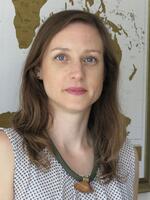 Tracy Adams, Weiss-Livnat International Center for Holocaust Research and Education, University of Haifa, Israel Tracy Adams, Weiss-Livnat International Center for Holocaust Research and Education, University of Haifa, Israel
Tracy Adams is a Postdoctoral Associate at the Department of Sociology, Yale University, and a research associate at the Weiss-Livnat International Center for Holocaust Research and Education, University of Haifa. Her research interests include the intersection of collective memory, conflict, culture, and politics and how meaning is constructed through interactive processes of negotiation. She has a particular interest in Holocaust memory and antisemitism and the relationship between the two. Her recent research has been published in Sociological Forum (2022), British Journal of Sociology (2021), Media, Culture & Society (2021), American Journal of Cultural Sociology (2022), Current Sociology (2022), and International Journal of Cultural Studies (2022). Tracy will be teaching the course, ‘Contemporary Antisemitism and Holocaust Memory’ for the Yale Sociology Department in the spring 2023 semester. (Postdoctoral Associate - September, 2021 to February, 2023; Research Scholar - February, 2023 to September, 2023)
|
 Federico Brandmayr, The Whitney and Betty MacMillan Center for International and Area Studies at Yale Federico Brandmayr, The Whitney and Betty MacMillan Center for International and Area Studies at Yale
Federico Brandmayr is a Postdoctoral Associate at the MacMillan Center at Yale University. He holds degrees from the University of Trieste (Italy) and Sorbonne University (France), and was previously Research Associate at CRASSH, University of Cambridge (United Kingdom). His research examines social science as a cultural system. In particular, he studies the use of social and historical research in legal and political contexts, the social effects imputed to scientific knowledge, and the variety of epistemic cultures in the social sciences. He is currently working on a book manuscript, tentatively titled Exculpatory Knowledge: How and Why Social Science Becomes Apologetic, on what it means to say that research in the social sciences excuses, justifies, or normalizes harmful practices and institutions. (Visiting Fellow - September, 2022 to September, 2023).
|
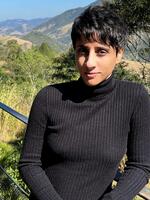 Sara Raquel de Andrade Silva, Universidade Federal do Rio de Janeiro, Brasil Sara Raquel de Andrade Silva, Universidade Federal do Rio de Janeiro, Brasil
Sara Raquel de Andrade Silva is a Ph.D. candidate in Sociology at the Federal University of Rio de Janeiro, where she studies contemporary art sponsorship. Her work seeks to understand how private companies appropriate progressive narratives through the sponsorship of politically engaged contemporary art and, in this way, dispute interpretative power with sacralized instances of art.
She holds a Masters’s degree in Sociology from the Fluminense Federal University, where she investigated the relationship between political polarization and censorship of art exhibitions and events in Brazil. She also participates in research groups that focus on electoral processes and political narratives and is part of the Todas as Artes|Todos os nomes international network of researchers in the sociology of art.
Other research interests include political polarization and the role of new technologies in electoral processes, and the intersections between art and politics in contemporary societies. (Visiting Graduate Student - August, 2022 to May, 2023)
|
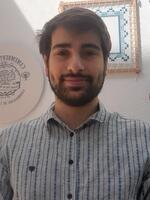 Pedro Moisés, University of São Paulo, Brazil Pedro Moisés, University of São Paulo, Brazil
Pedro Moisés is a Master’s candidate in Sociology at University of São Paulo, Brazil. He received his B.A. in Social Science in the same institution. Furthermore, he is an associate researcher in the Center for the Study of Violence (NEV-USP). His research concerns the representations of violence during 2018 presidential elections in Brazil, analyzing the different interpretations of the same event. The specific interest in this current research is the relationships between culture, violence, democracy and the rise of far-right leaders. His fields of work are: cultural sociology, political sociology, sociology of emotions, human rights, sociological and social theory. E-mail: pedro.moises@usp.br. (Visiting Graduate Student - January, 2023 to July, 2023)
|
 Zikun Liu, Tsinghua University, China Zikun Liu, Tsinghua University, China
Zikun Liu is a 3rd-year Ph.D. student at the School of Journalism and Communication, Tsinghua University, Beijing, China. Her research interest is cultural sociology and risk communication.
The research she did in “Metaphors in the Memorial Reports of Wenchuan Earthquake” and “News Frames and Disaster Narratives of Six Major Accidents in China” have already been published. She has found that Chinese mass media catered to the grand narrative of the country and strengthened political, cultural, and social identity through the use of metaphors, and the “individually interpreted” disaster narrative downplays the impact of the accident on the overall social order, constituting a kind of disaster construction strategy that is both newsworthy effectiveness and politically correctness. She is currently working on exploring the memorial ceremony in Chinese major disasters. (Visiting Graduate Student- October, 2022 to October, 2023)
|
 Jason Mast, Marie Skłodowska-Curie Global Fellow, University of Trento and Yale University Jason Mast, Marie Skłodowska-Curie Global Fellow, University of Trento and Yale University
Jason L Mast is a Marie Skłodowska-Curie Global Research Fellow at the University of Trento and Yale University. Funded by the Horizon 2020 program of the European Commission, Mast’s research investigates cultural codes in crisis in three series of events: the rise of Trumpism in the US, the prelude to the Brexit vote in the UK, and the successes of the far right in Germany. Currently, he is focusing on the rise of populism in the U.S., and explaining Donald Trump’s victory in the 2016 presidential election. Cultural forms like codes and narratives, and processes like social performances and dramas, are central themes in this work. Some of his recent writings can be found in the edited volumes, Populism in the Civil Sphere (2021, Polity), and Politics of Meaning /Meaning of Politics: Cultural Sociology of the 2016 U.S. Presidential Election (2019, Palgrave Macmillan) (Visiting Faculty Fellow - April, 2021 to April, 2023).
|
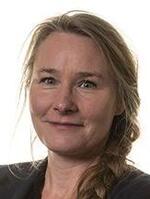 Liv Egholm, Copenhagen Business School, Denmark Liv Egholm, Copenhagen Business School, Denmark
Liv Egholm, Ph.D., is an associate professor and director of the Center for Civil Society Research at Copenhagen Business School, Department of Management, Politics & Philosophy (DK). Her scholarship is centered on how concepts, practices, and temporalities impact cultural and social organizing. She is especially interested in the way we conceptualize “the common good” and its implications for how we address and solve the (grand) challenges of our day by organizing the present and diagnosing the future. Her research contributes to contemporary discussions of: civil society, “the common good,” philanthropic gift-giving practices, and temporalities, as well as more theoretical and methodological discussions rooted in a relational-processual approach inspired by cultural sociology, pragmatism, and semiotics. In her current research, she is investigating how the negotiations of “The Common Good” are translated into civil action and civil organizing over time. Particularly, the research sheds lights on the social inclusion/exclusion mechanisms involved in the process, and its consequences for future social actions. Among my recent publications are: A processual-relational approach to civil society (Routledge, 2021), Five progressive responses to the grand challenges of the 21st century (Thesis Eleven, 2021), Complicated translations (Polity Press, 2020), Advancing a post-sectoral conception of civil society-moving beyond Civil Society? (IJPCS, 2020), Practicing the common good: Philanthropic practices in 20th-century Denmark (IJPCS,2020), Matters of Translations (Cambridge Press, 2019), Civil Society Organizations: The Site of Legitimizing the Common Good (Voluntas, 2019) (Fulbright Visiting Fellow - Fall 2022)
|
|
Malcolm Jacobson is a Ph.D. Candidate at the Department of Sociology at Stockholm University. His research interests are in collective memory, aging, and gender. Drawing on cultural sociology he analyses narratives, visuals, and material culture. His dissertation explores how memory work is performed as subcultural performers age. The empirical case regards production of meaning across life courses of middle age male graffiti writers. He finds that photographs and social media are used to braid memories together into shared pasts. In this, anomalies concerning aging and masculinities within the symbolic system of the subcultural are negotiated.
Before he started his graduate studies he worked as a photographer and book publisher. He has published several documentary and non-fiction books on art and minorities as an editor and writer. (Visiting Graduate Student - September, 2023 to December, 2023)
|
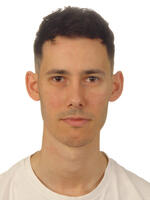 Pablo Echeverría-Esparza, Public University of Navarra, Spain Pablo Echeverría-Esparza, Public University of Navarra, Spain
Graduate in Applied Sociology by Public University of Navarre (UPNA), Master’s Degree in Advanced Studies in Social and Cultural Anthropology by Complutense University of Madrid (UCM) and PhD student hired as a pre-doctoral researcher by Public University of Navarre (UPNA).
Member of the research team of I-Communitas Institute for Advanced Social Research (UPNA).
He has published articles and book reviews in specialized journals such as Revista Española de Sociología (RES), Antropología Experimental, Revista CIDOB d’Afers Internacionals, and Revista Española de Salud Pública, as well as a book chapter for the prestigious publisher Catarata . His main lines of research are sociology of religion, health and death.
He has been the main researcher in an investigation on the ways of dying in Navarre, carried out for the Observatory of Dignified Death in Navarre. He has worked as a teaching collaborator, teaching half of the subject “Ideologies and collective representations” of the third year of the Degree in Applied Sociology of the Public University of Navarra during the 2021-2022 academic year. (Visiting Graduate Student - September, 2022 to December, 2022)
|
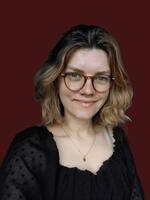 Kamile Grusauskaite, Katholieke Universiteit Leuven, Belgium Kamile Grusauskaite, Katholieke Universiteit Leuven, Belgium
Kamile Grusauskaite is a doctoral candidate at the Institute for Media Studies at KU Leuven University, Belgium. She is currently the principal researcher in the FWO (Research Foundation Flanders)-funded project titled Imagining Opaque Power. The Production and Consumption of Conspiracy Theories on YouTube, that examines how and why theories of conspiracy are formed, circulated and consumed online. Her work lies at the intersection of cultural sociology and media studies, and draws on the seminal work of Stuart Hall, among others. She has authored several peer-reviewed international publications, including in journals like Public Understanding of Science, and Social Media + Society. (Visiting Graduate Student - September, 2022 to January, 2023)
|